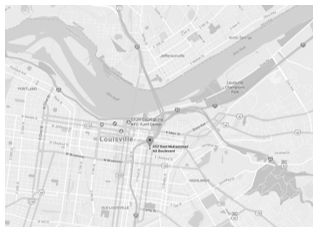From acting to health care, UofL nursing and medical school alumna Kristie J. Paris, M.D. shares her story
- Describe how you began your career.
Initially, I wanted to work in theatre. I had a scholarship to Juilliard, and in High School I participated in the junior theater at Actors Theatre. Then, I decided to become a nurse. I applied to Norton’s School of Nursing; a diploma degree program in 1972; my clinicals were from 7am-noon, classes were from 1pm-5pm and our Science and general requirement courses were taught on the Belknap Campus from 6- 10 pm.
- You went on to earn a bachelor’s of science in nursing and a medical degree, how did you make these decisions?
After earning the diploma degree, I decided to go back to school to get a degree in biology and thought about becoming a physician’s assistant; Nurse Practitioners were just in their infancy. During this time, I was working part time in the intensive care unit at Kosair Hospital and then on the Leatherman Spine Floor at Norton’s. While earning my degree in biology, I met Dr. Ruth Craddock. After multiple conversations she recruited me into Uof L’s first baccalaureate nursing class in 1976.
In the 70’s, nursing classes were taken in tandem with some of the medical school courses, and I did really well in those combination classes. Dr. Craddock and Karen Roberts talked to me about pursing a master’s degree and becoming a nurse practitioner. However, simultaneously Dr. Polk and Dr. Lynne Waite convinced me to take the MCAT; and on March 17, 1978 I was accepted into the UofL School of Medicine. I chose Medicine over Nursing at that time because the roll of the Nurse Practitioner was not well defined.
In 1982, I graduated from medical school. I elected to complete a residency at the James Graham Brown Cancer Center from 82-86, and completed fellowship in Radiation Oncology at the Mallinkrodt Institute of Radiology, at Washington University 1986-87. I then returned to the University of Louisville to practice Radiation Oncology, and become the Residency Program Director.
- Were your involved in any student life activities while at UofL?
Yes, I served as the first president of the School of Nursing student government association. We were rebels and pursued the separation of the student body from the School of Medicine. Meanwhile Dr. Craddock was also formally separating the School of Nursing from the School of Medicine. Prior to this time, the School of Medicine represented the school of Nursing.
- Why did you ultimately decide to teach?
Even after leaving UofL, I was always teaching; teaching techs, nurses, residents and students. The willingness to learn and the willingness to teach always make practice at all levels more rewarding. Teaching builds a stronger team, and improves patient care and outcomes. The biggest part of medicine is the education of our patients we serve. That is why I went into academic medicine because I value lifelong education and learning.
I became an assistant professor at the UofL School of Medicine in 1987, associate professor in 1993 and full professor in 2000. In 2008 I decided to leave the UofL for private practice for personal reasons. I am very proud to have been named one of Louisville’s “2015 TOP DOCS” in radiation oncology.
- Speak to the importance of nursing in health care.
When nurses are given knowledge and the support they deserve. They are the front-liners to patient care. I am proud to say that UofL nurses are more hands-on, very well rounded, focused on the patient, and much more empathetic to patients and their families. Health care can not and will not move forward if not for nurses. Doctors can often be sidetracked with the strains of health care and the compliance issues allowing for detachment from the patient. Nurses do not detach – they are the patient’s advocate and frontline caregiver. I am proud to be a Nurse and a physician.
